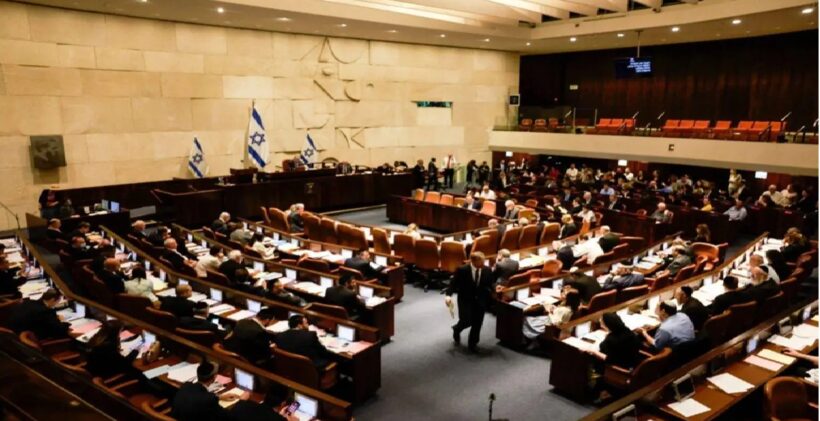
The Israeli occupation government has advanced two bills that would curb activities aimed at documenting human rights violations and war crimes committed by Israel.
The Ministerial Committee on Legislation yesterday approved the first bill which prevents sharing information with the International Criminal Court (ICC) in The Hague and punishes violators with up to five years imprisonment.
The bill, introduced by Likud MK Amit Halevi, stipulates that Israeli individuals or organisations who transmit information about Israeli military operations to the ICC would face a five-year prison sentence.
In November, the ICC issued international arrest warrants for Israeli Prime Minister Benjamin Netanyahu and former Defence Minister Yoav Galant, as well as undisclosed Israeli politicians and members of the Israeli army on charges of war crimes and crimes against humanity in Gaza.
At the time, Halevi accused the court of “anti-Semitism”, adding that Israel does not recognise the ICC’s mandate.
“There is a real fear that the constitutional rights of those who serve the State of Israel, first and foremost the right to a fair judicial process, will be harmed in the framework of such proceedings. Moreover, proceedings before the court lack the balances required to defend the State of Israel security in all matters related to the investigation and trial of sensitive security cases,” he claimed.
Halevi has further claimed that the bill aims to protect Israeli soldiers, elected officials and citizens from the ICC’s actions against Israel, “including imposing secrecy on classified evidence and presenting data that is subject to the weight of opinion of foreign entities, which are not committed to the safety and security of the State of Israel.”
The bill is expected to face opposition after the preliminary reading, as it restricts freedom of expression and the right of individuals or human rights organisations to file complaints before international bodies.
The second bill, submitted by Likud MK Ariel Kallner, would allow the government to tax foreign government donations to domestic nonprofits at a rate of 80 per cent while also stipulating that courts need not consider petitions by groups “primarily financed by a foreign political entity”.
“The purpose of this bill is to reduce the indirect influence of foreign governments and political entities on the State of Israel. This influence is manifested, among other things, in direct financial support for nonprofit organisations in Israel, which act as agents of change on behalf of these entities,” the bill’s explanatory notes read.
The bill argues that such external funding “goes beyond the limits of the democratic framework and harms the sovereignty and independence” of Israel.
“If two countries have a dispute, they must try to convince each other through diplomatic means, dialogue and negotiation between counterparts, but not through financing change agents and organisations whose purpose is to lead change from within in favour of the aforementioned foreign interests,” it adds.
Under Israeli law, organisations are exempt from paying taxes on donations.
Following the Ministerial Committee’s vote yesterday, the Association of Civil Rights in Israel (ACRI) accused the government of attacking liberal civil society groups while leaving right-wing organisations untouched.
“This proposed legislation is a direct assault on Israel’s democracy and part of the ongoing judicial coup. It represents a systematic attack on all institutions that check government power, and specifically targets human rights organisations working to protect minorities in Israel and Palestinians in the occupied territories,” Noa Sattath, ACRI’s executive director, told the Times of Israel.
She explained that the selective taxation targets only foreign state funding from Israel’s closest allies — including the United States and European Union member states — who support democracy, human rights, and minority protection.
“Meanwhile, right-wing organisations relying on private donations remain unaffected, and the finance minister has discretionary power to exempt certain organisations while those receiving state funding are automatically excluded,” she added.
“Organisations supported by the government can continue to receive donations without hindrance. This is a gag and an attempt to shut down organisations that operate according to the law and annoy the authorities,” according to Haaretz.
In 2023, a similar bill, submitted by Kallner, was frozen following pressure and opposition, including from the Biden administration and European countries. The previous bill stipulated that donations would be subject to income tax at a rate of 65 per cent.
